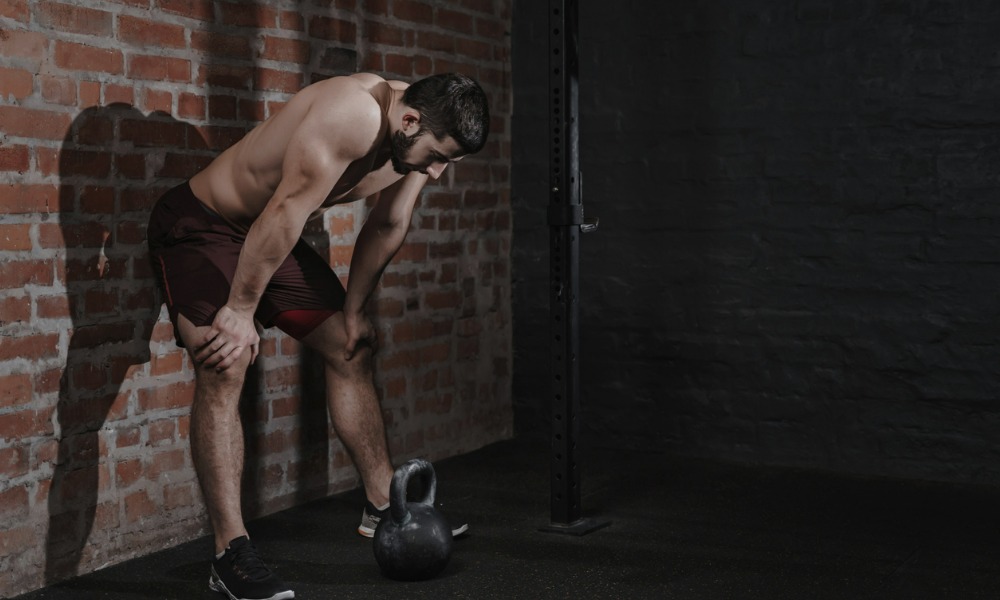Strenuous muscle exercise can cause severe kidney damage

Rhabdomyolysis (colloquially known as “rhabdo”) is, according to Healthline, the breakdown of damaged skeletal muscle.
This muscle breakdown causes the release of a protein called myoglobin – the protein that stores oxygen in your muscles – into the bloodstream.
The protein is then filtered out of the body by the kidneys – this breaks down into various substances that can damage kidney cells.
So, in essence having too much myoglobin in your blood can cause kidney damage.
Causes of rhabdomyolysis
The condition is always caused by muscle injury.
A recent article on The Washington Post highlights that the long hiatus of gym-going caused by the pandemic may mean that once people start going back to the gym, they may not be as cautious as they should be – leading to potentially fatal results.
“I’m worried that there might be a spike with people going back into it with the reopenings […] feel like I’m starting to see younger. I’ve seen 18-year-old kids who get it. A lot are 30 or less,” said Maureen Brogan, associate professor of medicine of Albert Einstein College of Medicine to The Washington Post.
As well as physical exertion, rhabdo can also be caused by chemical or genetic causes (such as metabolic disorders for example). And with muscle injury as the cause, endurance athletes are at risk, as are other workers who work in physical professions. This includes firefighters and service members as well as older workers.
“It could be from any repetitive motion of a muscle when the muscle has not been used in that way,” said Brogan.
READ MORE: Mesothelioma and the dangers of asbestos exposure
Symptoms of rhabdo
So what are the symptoms of rhabdomyolysis? And how to prevent rhabdo?
The Cleveland Clinic notes that rhabdo has a range of symptoms of varying degrees of seriousness. They usually develop one to three days after the muscle injury – symptoms may even be hard to recognize because they can be so mild. Symptoms can include muscle swelling; weak, tender and sore muscles; dehydration or decreased urination; dark urine that is a brownish hue; nausea; and even loss of consciousness.
A National Institutes of Health review revealed that up to 40 per cent of cases end in kidney failure.
Because of the potential kidney damage, those with rhabdo are typically treated with fluids through an intravenous (IV) drip, and some patients even require dialysis or hemofiltration to address more serious damage.
There are a number of ways to avoid or decrease the risk of rhabdo.
Start an exercise program slowly
As mentioned before, returning to the gym after months without regular physical exercise may lead to people going a bit too hard – and potentially triggering muscle injuries. Rather be safe than sorry by coming up with a proper exercise program to ease yourself slowly back into moving.
Outside of the gym, some workers have also been away from physically demanding jobs during the pandemic months and may also need to ease themselves back into being more physically active. Employers should be aware of this and plan accordingly – and potentially also include a gentle exercise program in their back-to-work plans.
READ MORE: 7 most common occupational diseases
Avoid getting overheated and drink plenty of fluids before and after strenuous exercise
Heat causes faster muscle breakdown, leading to the kidneys not being able to dispose of all the waste in the body if they are not supplied with fluids to help flush toxins out. Thus, workers and employers need to be careful to avoid severe dehydration and overheating.
Workers need to stay hydrated and also take breaks in the shade if they are doing any sort of physical activity in the heat.
This is especially important at the moment for workers in B.C. for example, who are experiencing record levels of heat.
Don’t take illegal drugs or abuse alcohol
Medline Plus says that the use of drugs such as cocaine, amphetamines, heroin, LSD or PCP can increase the risk of rhabdo.
And illegal drugs are not the only substances that may put the user at risk. Healthline says that one of the causes of rhabdo can be statin medications – these are medications that are cholesterol-lowering and include atorvastatin, rosuvastatin or pravastatin.
The Cleveland Clinic additionally states that excessive alcohol consumption is toxic for the body and can cause muscles to deteriorate – potentially leading to rhabdo.





